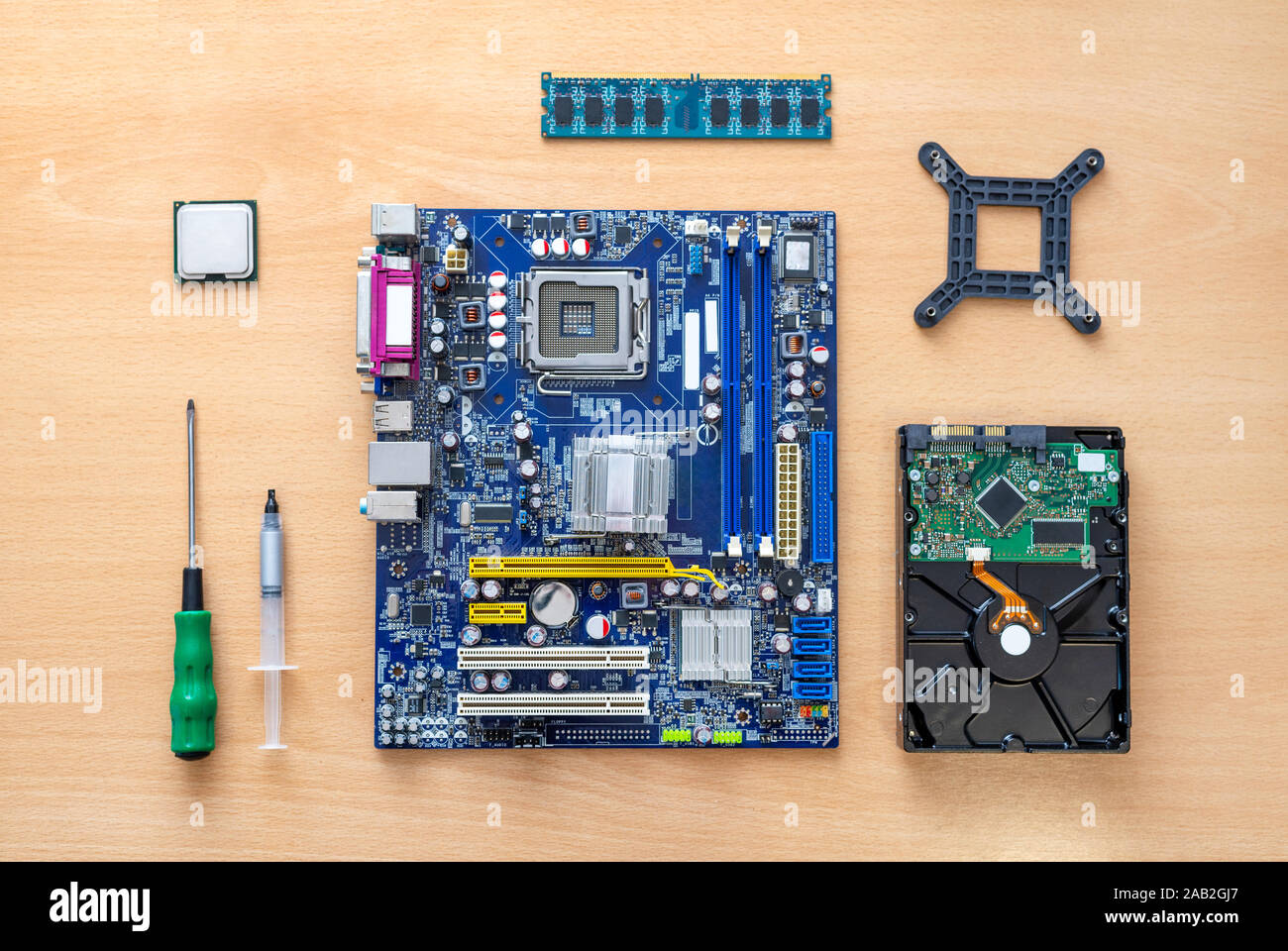In today's rapidly evolving technology landscape, the demand for PC parts is constantly increasing, leading many individuals and businesses to explore the world of surplus PC components. Whether you are a budget-conscious gamer, a DIY enthusiast, or just looking to enhance your system without breaking the bank, getting acquainted with surplus parts can be both thrilling and beneficial. However, for beginners, navigating this market can feel daunting, with countless choices and the intricacies of assessing quality.
This manual aims to streamline the process of buying surplus PC parts, providing you with key tips and insights. From learning how to identify top-notch components to grasping the optimal methods for evaluating pre-owned hardware, we will cover all you need to know. Get ready to embark on your journey into surplus PC parts, where you can discover great deals and build a reliable system that meets your requirements.
Essential Guidelines for Acquiring Excess Computer Parts
As you venturing into the field of surplus computer parts, it is crucial to start with extensive research. Understand the particular components you need, be it a motherboard, GPU, or RAM. Get acquainted yourself with the brands and models known for reliability and capability. computer surplus equips you with the ability to spot high-quality components and prevent costly mistakes.
Another key tip is to inspect the state of the parts before making a purchase. Look for https://harder-woods.federatedjournals.com/excess-computer-components-minimizing-waste-in-tech of wear and tear, such as rust, bent pins, or excessive dust buildup. Testing the components when practical can also provide reassurance. For items like GPUs and CPUs, ask for usage history or performance benchmarks if available. This helps in confirming that you are getting products that meet your requirements.
In conclusion, purchasing from trustworthy sources is crucial to avoid scams or subpar items. Research online forums, reviews, and seller ratings to find trustworthy vendors. Be wary of bargains that seem too good to be true, as they often are. Building networks with trusted suppliers can lead to more favorable deals and insider knowledge about upcoming sales or rare finds.
Analyzing Caliber and Functionality of Elements
As diving into the realm of surplus computer components, the standard and efficiency of individual component are vital factors to evaluate. A thorough evaluation begins with analyzing the observable condition of the pieces. Look for indicators of damage, such as oxidation, or apparent defects. These can suggest that the component has been neglected or may not operate reliably. Checking for factory packaging, manuals, or indications can also provide understanding into the component's background and reliability.
To evaluate functionality, researching details is essential. Comprehending the model and its specifications will help you determine whether it fulfills your needs. For instance, when looking at a surplus CPU, seek out comparison metrics and assessment results conducted by reputable sources. This insight enables you to compare the surplus part against contemporary options or rivals, ensuring you are making an informed decision regarding performance in relation to your needs.

Additionally, assessing components when practical is important to avoid future issues. For instance, if you have the ability to use a compatible system, assessing a surplus GPU for stability and heat management can give a concise picture of its functionality. Utilizing analysis software to check the status of hard drives or SSDs, as well as performance tools for CPUs and GPUs, can further validate the quality and performance of the components before committing to a buy.
Finding the Best Bargains on Surplus Equipment
When searching for surplus computer parts, one of the key efficient strategies is to remain informed about cost trends and accessible inventory. Platforms like Amazon, and specialized surplus retailers frequently have varying prices based on demand and availability. Setting alerts for particular components can help you grab excellent deals before they are gone. Frequently checking these sites can provide you insights into what constitutes a reasonable price, enabling you to make informed purchasing choices.
An additional way to find valuable deals is to engage with local computer fix shops or businesses that typically upgrade their systems. Such shops may sell off their surplus parts at prices that are substantially lower than retail. Establishing good relationships within your local tech community can also lead to word-of-mouth recommendations about future sales or available components. Networking could provide access to deals that are not widely promoted online.
In conclusion, consider going to computer parts exchange meets or tech expos where surplus equipment is often sold. These events not just offer competitive pricing but also offer you the opportunity to personally inspect the items before acquiring. Engaging with the sellers can provide insights into the condition and history of the parts, allowing you to make more assured buying decisions. By combining online and offline strategies, you can uncover the best deals on surplus computer equipment.
